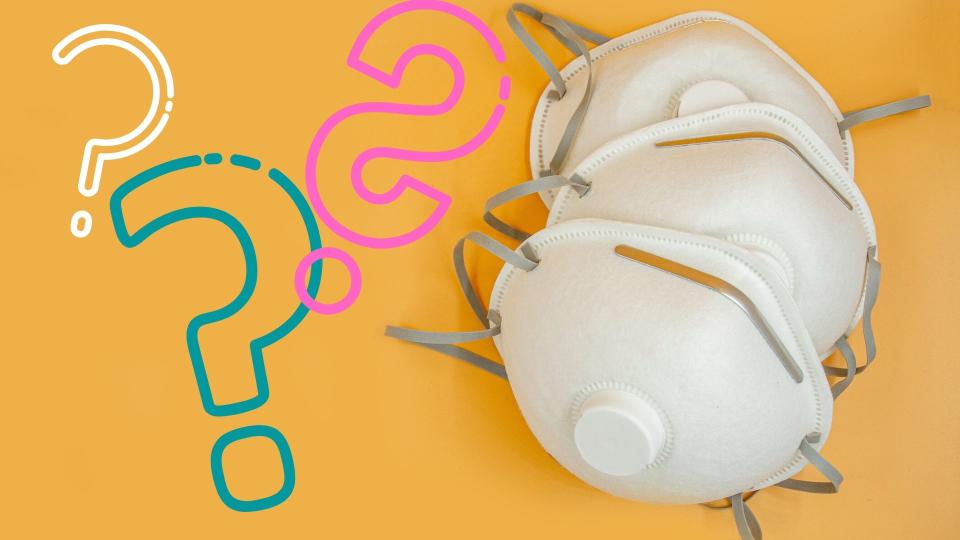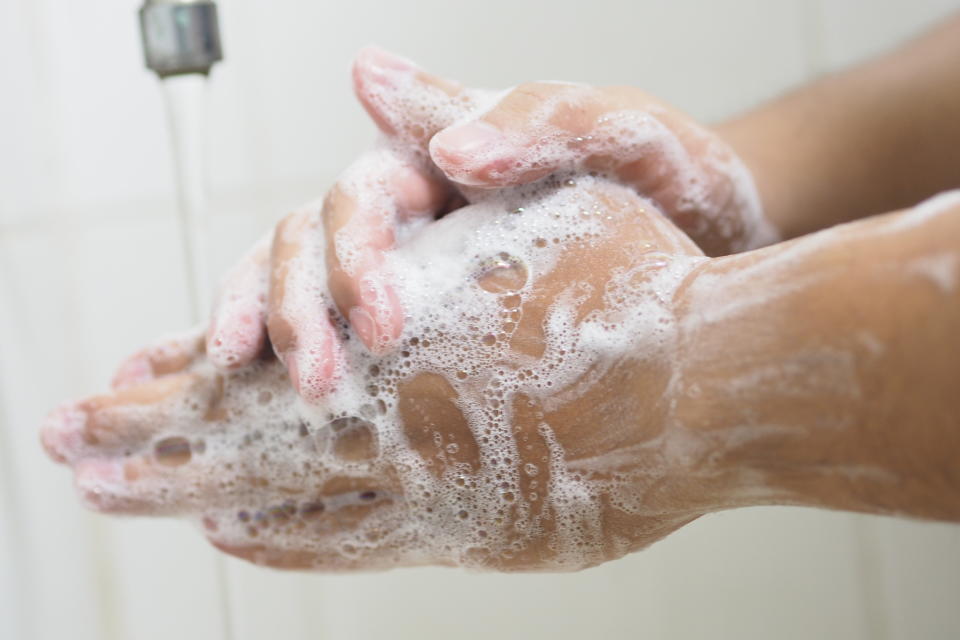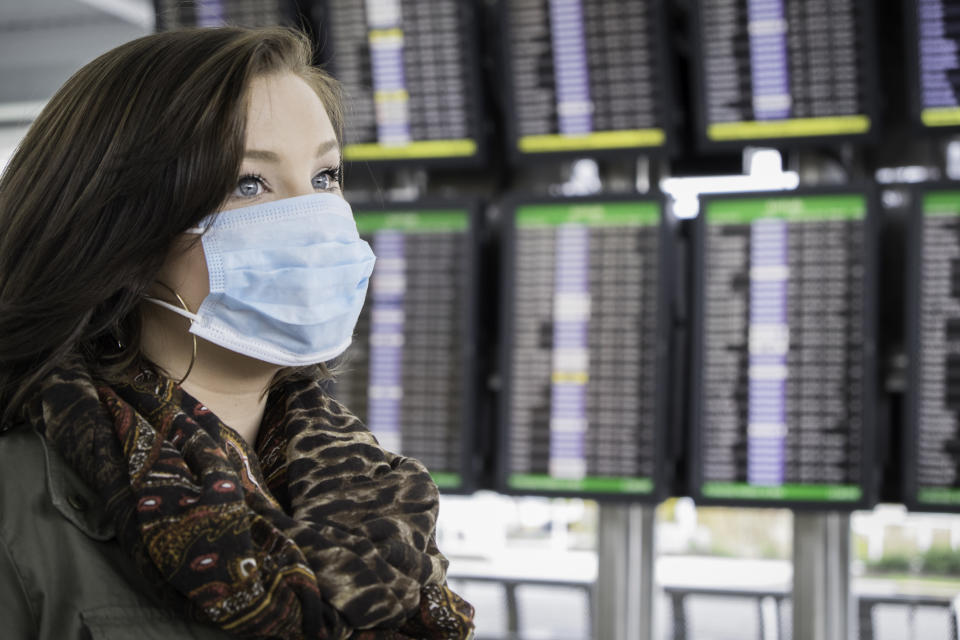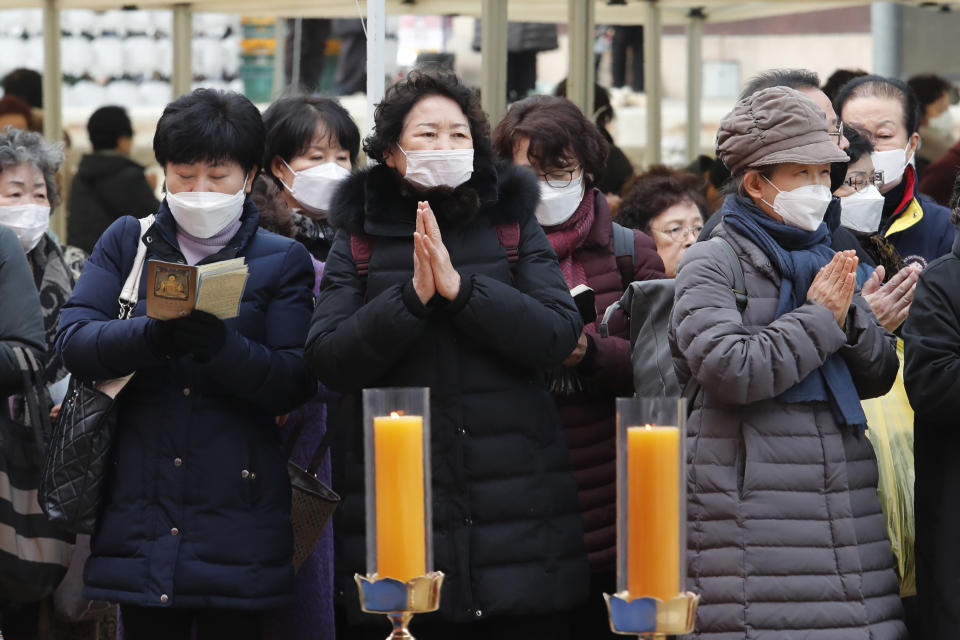Face masks up 1500% in price, but do they even work?

Australians are frantically buying up face masks to protect themselves against the coronavirus outbreak, leading some wholesalers to increase supplier costs by more than 1,500 per cent.
Related story: Disturbing truth about face masks for sale online
Related story: Restaurants take whopping 80% hit from coronavirus
Australian supplier Livingstone Pty Ltd increased the wholesale price of P2 face masks from $2.50 a unit to $38.50, leading the Pharmacy Guild Victoria president Anthony Tassone to refer the company to the Australian Competition and Consumer Commission.
“Critics of the community pharmacy model claim that consumers will be the winner in a 'free market',” Tassone said on Twitter.
“Well folks - this is the free market… supplier costs have increased by greater than 1,500 per cent in the past month.”
Critics of the community pharmacy model claim that consumers will be the winner in a “free market”
Well folks - this is the free market #coronavirus #nCoV2019 style higher up in the supply chain before the mask gets to the pharmacy
Supplier cost have inc > 1500% in past month pic.twitter.com/ATudYC19bT— Anthony Tassone (@A_Tass1) February 12, 2020
However, Livingstone claims it has adjusted the prices to put off scalpers who it claimed had already bought 90 per cent of its face mask stocks to on-sell for a profit.
‘We... have adjusted the prices and set daily quantity limits to deter scalpers.’
“We regret to advise that we have been targeted by professional scalpers who have bought huge amounts of our face masks,” Livingstone stated on its website.
It’s not just face masks: Coles sells out of hand sanitiser as coronavirus rush hits
“We have depleted around 90 per cent of our stock due to this and have only about 10 per cent remaining. We can no longer afford to have this situation and have adjusted the prices and set daily quantity limits to deter scalpers.”
Livingstone also noted that its overseas factories have been “reserved by their government”, and as such will not be receiving more stock.
“We will work to resolve our pricing issues and quantity policies as soon as these supply issues have been resolved.”
But do face masks even protect us from coronavirus?

In short – no, with one important caveat.
‘If you’re in Australia and not working in the healthcare industry, there’s little need to wear a face mask unless you’re sick.’
“There is no need for the Australian public to wear masks. The only people who should wear masks in relation to this virus are those who are unwell,” Australia’s chief medical officer Brendan Murphy said.
The Pharmacy Guild of Australia noted this in a recent information note, advising pharmacists to “use their own judgment” when it comes to members of the public attempting to purchase them – and even use Google Translate to communicate the actual benefits of face masks in the case of a language barrier.
“We urge pharmacies with stocks of face masks to keep some masks in reserve for those cases where a patient presents with symptoms and a travel history that gives rise to concern that they may have contracted novel coronavirus.”
There are two main types of masks: surgical masks and respirators. The Australian Associated Press summarised how they work.

Surgical masks
Are the kind worn by surgeons during operations.
Protect the wearer against large droplets or splashes of bodily and infected fluids from others.
Do not prevent a person from inhaling smaller airborne particles.
Are loose-fitting and when the wearer inhales, there is potential for particles to leak in or out of the sides.
Are not considered 'respiratory protection'.
Respirators
Are designed to prevent most small particles from entering the nose and mouth area.
Recommended for healthcare professionals treating patients infected by coronavirus.
Can make it more difficult for a person to breathe.
Only work if they fit properly and aren't suitable for children or people with facial hair.
So, the masks are only semi-affective at best.
Instead, Australians should practice good cough and hand-washing hygiene.
That means washing your hands before you prepare food and eat, after touching animals, after caring for someone who is sick, after coughing or sneezing and after going to the bathroom.
And it has to be more than just a quick rinse: you’ll want to wash them for at least 20 seconds with soap under running water.
The story is different overseas

While Australians have been advised that good hand washing hygiene is the best protection, official health advice for people living in China is different.
In some provinces like Wuhan and Shanghai, residents must wear face masks and submit to body temperature checkups.
Government officials in South Korea have also encouraged citizens to wear masks while using public transport.
All of this is pushing up demand for masks internationally. Some countries like Taiwan have banned the export of protective gear including masks, and iPhone manufacturer Foxconn has shifted its production lines to make its own line of surgical masks.
With AAP.
Make your money work with Yahoo Finance’s daily newsletter. Sign up here and stay on top of the latest money, news and tech news.
Follow Yahoo Finance Australia on Facebook, Twitter, Instagram and LinkedIn.

 Yahoo Finance
Yahoo Finance 
